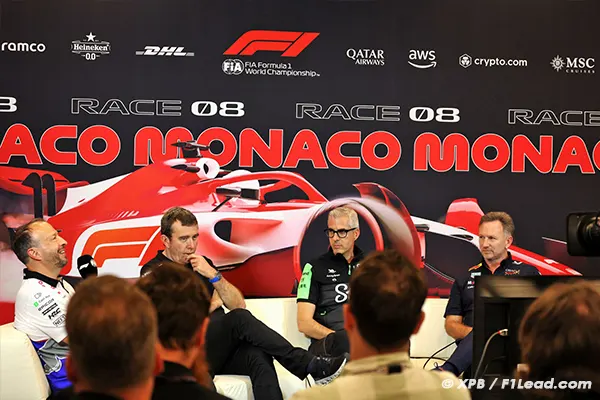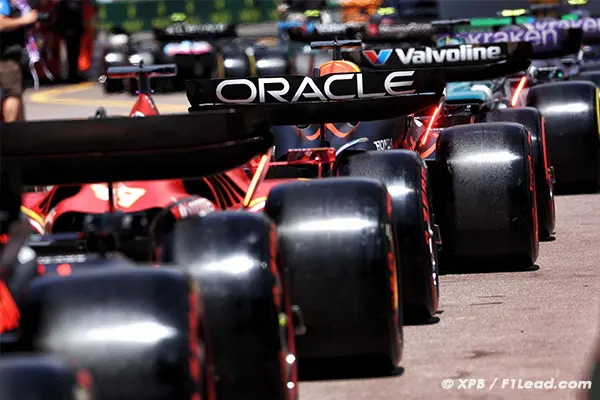Negotiations for post-2026 F1 budget caps include raising limits but reducing exemptions, impacting team investments. The focus shifts to maintaining financial balance while ensuring fair competition.
The Concorde Agreements for the post-2026 seasons are currently under negotiation.
A key issue in these negotiations concerns the budget caps. Currently, the financial regulations set a cap at $135 million based on 20 races (with an additional $1.2 million per extra race).
However, there are numerous exceptions: marketing budgets, driver salaries, salaries of three top executives, and employee wellness expenditures. There is also a separate cap for investment spending, which has recently been raised.
In the upcoming negotiations, the FOM and FIA intend to make a concession to top teams by raising the cap to $220 million (also to account for inflation).
But in return, F1 plans to reduce the exemptions from the caps. Investment budgets would be included, significantly limiting budgetary freedom, especially for smaller teams.
Moreover, and this is a real concern for gender equality in F1, additional personnel expenses almost exited the list of budget exceptions. For instance, maternity leave.
Potential Problems: Could Teams Hire Fewer Women Due to ‘Fear’ of Maternity Leave?
This would be an unfortunate but logical consequence of such a decision.
Another potential blow for employees discussed was the inclusion of staff parties, such as Christmas celebrations, within the budget caps. Consequently, no more ‘Secret Santa’ and various staff parties… It doesn’t look good for working in F1!
So, where do the negotiations stand?
Does a top team like Red Bull, which has significant investments to make, support the increase in the cap in exchange for reducing exemptions? Christian Horner spoke on this crucial topic during a press conference in Monaco.
“It’s about finding a balance,” comments Christian Horner. “The budget caps have taught us a lot. And the most important thing for 2026 is that employees do not bear the brunt of these changes.”
“There is, therefore, a reasonable discussion about what should be included, what should remain excluded, and what is truly relevant for performance. For instance, does a Christmas party make your car go faster? If it has to be included in the cap, every technical director will prefer a front wing over a Christmas party. So, it’s about finding a balance. I’m not saying our technical director doesn’t like Christmas parties, but he likes front wings. Thus, we need to find a balance that ensures employees don’t suffer because of this situation.”
“But overall, I think the discussion has been very productive and sensible. It’s about finding a balance between what is excluded and what is included in this higher budget cap.”
Bruno Famin from Alpine F1, however, is not opposed to some simplification. Too many exemptions could undermine the very principle of budget caps.
“The other idea is perhaps to try to simplify the process. The financial regulations are very complicated, and if we can manage certain aspects differently, it will be a bit easier and simpler to handle.”
Alessandro Alunni Bravi, the representative of the Stake F1 team, is in a unique position. While Stake is a small team, Audi is making, and already making, substantial investments. How can he find the right balance?
“Over the past three or four years of implementing budget caps, we have learned a lot. We have also learned how it applies in different areas. The aim is to avoid areas that can be interpreted differently by teams, particularly the definition of F1 and non-F1 activities, which is wise. The goal is to ensure a more level playing field, especially in departments related to car development.”
A differentiated approach for Switzerland and Audi/Sauber?
Bravi raises another point: salaries and the general cost of living are much higher in Switzerland than in Italy, for example. This also needs more consideration.
“It’s an opportunity for all of us to have a clear framework. For teams like ours, it will be important to introduce an element that can equalize the differences in terms of the cost of living because there is, of course, a gap between costs in Switzerland and other countries.”
“We should put all teams on the same level, at least as a starting point, so the difference comes down to people’s capabilities and the quality of work, rather than other factors that could negatively affect this starting point.”

New F1 Caps: More Money, Less Flexibility. New F1 Caps: More Money, Less Flexibility
- You may also like>F1 Chiefs Block Andretti: Buy a Team!
- Following us on Facebook and Twitter
